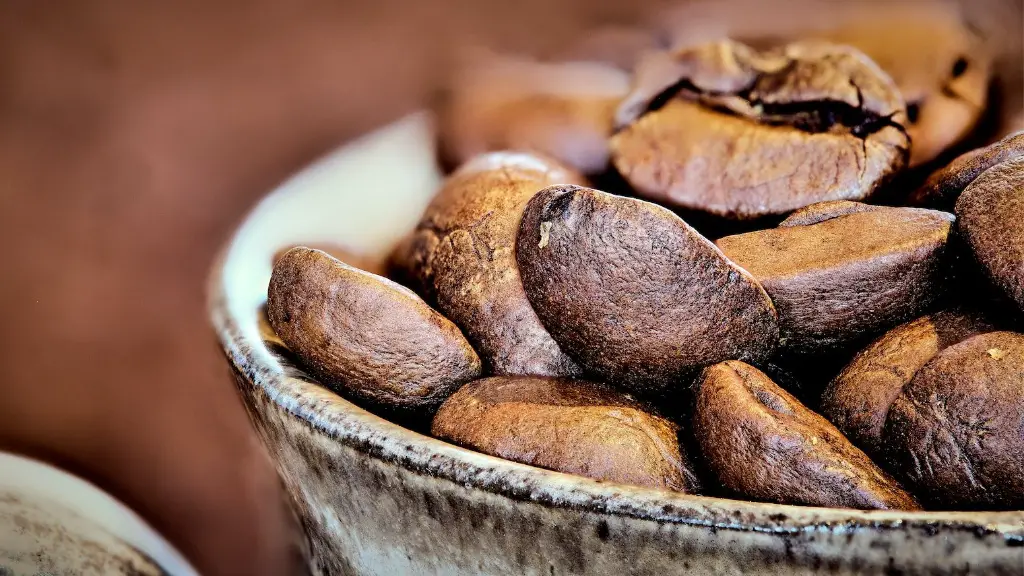Coffee is a popular beverage among adults of all ages. It’s been around for centuries, but should you let 11-year-olds drink coffee? Every parent or guardian will answer this question differently. It is important to consider the potential risks and benefits before allowing a child that young to start drinking coffee.
Background Information
Coffee is a beverage made from the roasted and processed seeds of the Coffea plant. It contains caffeine, which is a stimulant drug. This makes coffee a very popular beverage, with worldwide consumption estimated at 150 to 200 billion cups annually. Children are exposed to coffee in many places, including school, friends’ homes, and restaurants. For this reason, it’s important for parents to understand the potential consequences of allowing their children to drink coffee.
Pros and Cons
Some experts argue that children should be allowed to drink coffee in moderation. The American Academy of Pediatrics (AAP) recommends limiting caffeine intake to no more than 2.5 milligrams per kilogram of body weight per day. For an 11-year-old weighing 40 kg, that would be 100mg of caffeine a day. Coffee in moderation has been linked to multiple long-term benefits, including increased alertness and concentration and improved mood.
However, there are also potential risks associated with coffee. Caffeine can affect sleep, leading to fatigue and irritability. Too much caffeine can lead to nausea, headaches, and increased heart rate. Drinking coffee can also interfere with the absorption of essential vitamins and minerals, such as calcium, iron, and zinc. In addition, coffee is a diuretic, meaning that it can lead to dehydration.
Potential Pitfalls
In addition to the risks associated with caffeine intake, there are also potential social effects of allowing an 11-year-old to drink coffee. Coffee is an adult beverage, and allowing a young child to drink coffee could send a message that it is acceptable to drink alcohol or other substances. In addition, it could potentially lead to pressure from peers to drink coffee or other caffeinated beverages.
Expert Opinion
The AAP recommends avoiding caffeine altogether until a child reaches the age of 12. The AAP also states that after age 12, caffeine should be limited to no more than 100 mg per day. While the AAP recommends avoiding caffeine altogether, the reality is that many children consume caffeine in various forms, including energy drinks, soda, and chocolate. Because of this, experts believe that allowing an 11-year-old to drink coffee in moderation may be the best option.
Conclusion
Ultimately, it is up to parents or guardians to decide if an 11-year-old should be allowed to drink coffee. While there are potential risks associated with caffeine intake, there are also potential benefits. Experts recommend allowing children to drink coffee in moderation and limiting caffeine intake to no more than 100 mg per day. It is important to consider the potential risks and benefits before allowing a child that young to start drinking coffee.
Health Impact
Drinking coffee, particularly in those susceptible to headaches or anxiety, can worsen the symptoms. High levels of caffeine can also cause increased blood pressure, increased heart rate, palpitations and shortness of breath. Caffeine has been correlated with the nervous system disorders such as irritability and restlessness, sleep problems and headaches. Though studies have been relatively inconclusive on the causes of the disorders, most seem to agree that caffeine can either cause or exacerbate them.
Caffeine may also cause digestive issues such as stomach pain, acid reflux and constipation. Additionally, it can lead to weight problems due to its diuretic properties and its ability to increase feelings of hunger. The impact of caffeine on the developing organs of an 11 year old, short and long term, has yet to be thoroughly studied and cannot be fully addressed.
Nutritional Impact
Along with minerals and vitamins, caffeine is an unregulated legal stimulant, with recommended daily doses estimated to be 420 milligrams, or 4-5 cups of coffee a day. As an 13 year old, a recommended daily intake of caffeine would be 1-2 cups of coffee, although this should be closely monitored and discussed with a health care professional, as this may vary based on the individual’s sensitivity, health and other factors.
With the unregulated nature of caffeine, it can be difficult to accurately gauge how much is safe for a person to take in. It is also important to note that caffeine is present in a wide variety of foods, including energy drinks, soda, and chocolate. These are all sources of caffeine that should be taken into consideration when discussing caffeine intake for 11 year olds.
Quality Control
Drinking coffee carried with it the same risks most of us face when consuming any food or beverage: quality control. Coffee that is stale, old, or improperly stored can have a drastically different taste and nutritional composition than it is meant to have. This can lead to either a subpar coffee experience or sometimes, even worse, health issues that can be caused by ingesting coffee that is tainted with mold, bacteria, or other harmful substances.
It is important to ensure that any coffee being consumed by an 11 year old is of the highest quality, for both the taste and safety. This can be done through careful research and an understanding of how coffee is stored and roasted. Also, it is important to note that 11-year-olds should not be preparing their own coffee due to potential burn dangers.
Psychological Impact
As with the health and nutritional impacts of allowing 11 year olds to drink coffee, the psychological impacts are still largely unknown. Caffeine consumption has been linked to general anxiety, restlessness, and even sleep difficulties. It can also lead to other more serious psychological issues such as personality change and fatigue in some instances.
When it comes to allowing 11 year olds to drink coffee, these psychological impacts should be closely monitored and discussed with a professional. Additionally, it is important to keep in mind that caffeine’s effects can vary greatly from person to person and the individual needs of an 11 year old should be taken into account when making the decision.
Educate the Youth
if parents decide to allow an 11 year old to drink coffee, it is important to educate them on the potentially negative effects, risks and health concerns associated with caffeine consumption. Emphasizing the potential risks and teaching responsible consumption will help ensure that all 11 year olds who choose to drink coffee can do so responsibly and safely.
It is also important to discuss proper storage for coffee, as it can go stale and lose flavor quickly. Additionally, parents should consider partnering with child nutritionists, healthcare professionals, and mental health professionals in order to ensure that an 11 year old is ready for the potential risks and benefits of coffee consumption.




